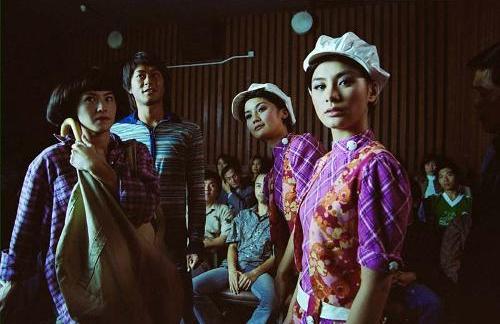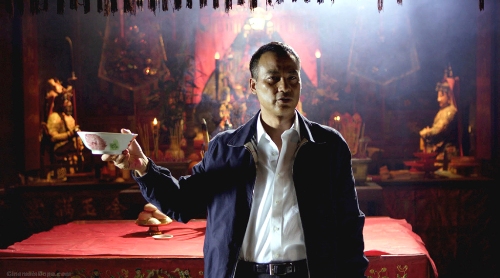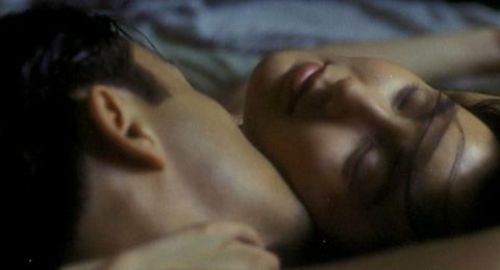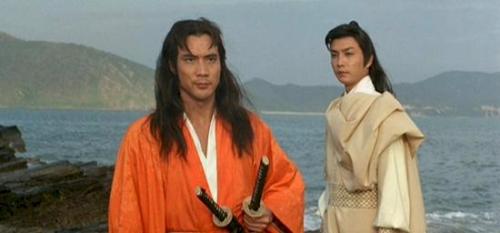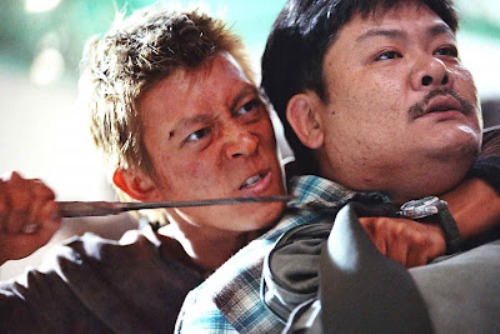
The Johnnie To-Wai Ka Fai partnership is a delicate balance. An exchange of ideas of what cinema can and should do from two filmmakers that have fairly different approaches that just happened to decide they are much better working together. Among all their films none illustrate this better than this satire, which derives meaning among other things through the noise their unusual collaboration brings to the table.
One a very basic level Help!!! is a rather clear film: a political satire about post-holdover Hong Kong using a very messy hospital where nothing works, doctor treat patients like garbage and a Kafkaesque cabal of unseen bureaucrats rule over everything and the efforts of three compassionate doctors (Cecilia Cheung, Ekin Cheng and Jordan Chan) towards making the place better. At center is the allegory of mal function, the idea that this is a place of paralysis where nothing is allowed to work (“being a doctor is hard” becomes the film unofficial refrain). Help!!! works from this idea overtime towards completing it with multiple signifiers that made clear that the hospital is a stand in for Hong Kong itself.
Plenty of satirical political comedies have been done this way, even if Help!!! comes with the expected tone of an over the top Hong Kong comedy and its typical ratio of very funny to just plain silly, but here we are in a Wai Ka Fai film and he can’t stop himself overcomplicating things. Help!!! is also a very cynical film that don’t even allow its heroes the right to their romantic idealism. A film that is deliberate structured to eat itself – the metaphor of mal function becoming part of the film construction – that literally ends in nothingness (and indeed the final twist suggest we have just watched another TV medical soap). The film is a deliberate incoherent text, which is set to muddle its own discourse so to better radicalize it. The concept is pure Wai Ka Fai and more than any other Wai-To collaboration one feels the division between Wai as an idea man and To as the metteur en scene is very pronounced here.
To some extent one can see a similar tone to Wai’s later comedy The Shopaholics (also co-starring Chan and Cheung) where intentional incoherence becomes central to its satirical nihilism proposal. If Help!!! is a much superior film that comes to the delicate balance that is the To-Wai partnership. Wai’s perception of cinema is very much a written one, his cynical satire exists mostly as a concept. Johnnie To’s idea of cinema is of a much more sensual nature, his conception of political satire has much more flesh to it. Johnnie To main contribution to Help!!! is given the hospital a strong sense of place that radical contrasts with Wai’s theatre of absurd. We might be in the middle of a comedy that includes talking cars and hospital patients as human garbage cans but the hospital breathes as an actual place whose mal function is a real tragedy and not just an allegorical concept. This has the effect of counter some of Wai Ka Fai cynicism with a dose of To’s romanticism, the tragic place makes Cheung’s efforts to better it matter in a different key. If Help!!! is a incoherent film it is much more political for being so, it is the noise between the concept and the sensual, the cynic and the romantic that gives each a larger more dynamic view of Hong Kong’s dysfunction.

